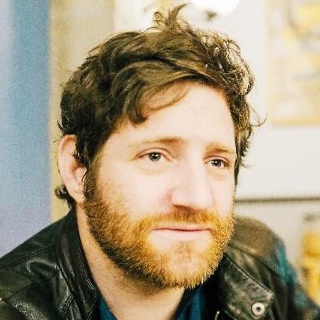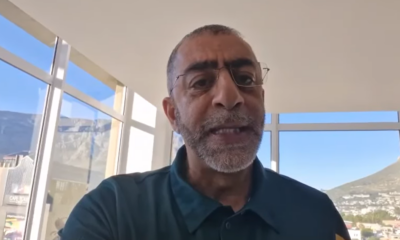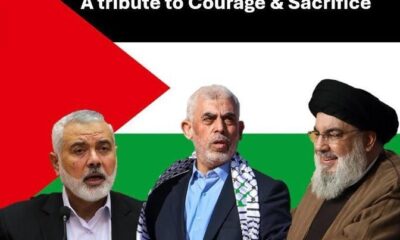
OpEds

Let’s bring Chanukah light to Hisham and Avera
It has been more than 3 000 days since Avera Mengistu, an Israeli citizen and member of the Ashkelon Ethiopian community, climbed over the border fence in Gaza and was captured by Hamas. His family has had zero contact with him since.
Roughly six months later, the same fate befell a 34-year-old who is part of Israel’s Bedouin community, Hisham al-Sayed, who crossed over into the terrorist-controlled enclave.
What was the reason these young men ended up in the Gaza Strip? They have a long history of mental illness, and often wandered hundreds of kilometres from their homes.
On 7 September 2014, Avera was highly agitated after his mental health began to deteriorate in the wake of his brother’s tragic death. As a result, he left home and began to wander. Video surveillance showed that he took off and walked approximately 10km along the beachfront between his hometown and the Gaza border, where he was eventually spotted, unusually close to the border fence, by Israeli soldiers. The soldiers tried to get his attention, instead, he was startled and climbed over the border fence and disappeared into Gaza.
Hisham has a similar story as he, too, often went missing without previously informing his family of his whereabouts. In the past, he had entered Jordan, the West Bank, even Gaza, but he was always returned by security personnel who were aware of his mental status and vulnerability. In 2015, however, he was taken hostage by Hamas. Fast forward, and Hamas released a video clip only this year, which appears to show Hisham lying in a bed, looking dazed, and wearing an oxygen mask – the first sighting of him since he disappeared seven years ago.
The holding of Hisham and Avera is a human rights violation on several counts. First, they are civilians who have no part in the war between Israel and Hamas and cannot be held or treated as enemy combatants. Second, the withholding of information about captives, as Hamas has done, amounts to an “enforced disappearance” and is illegal under the International Covenant on Civil and Political Rights, which has been signed by the Palestinians. It also goes against another piece of international law they signed called the Convention on the Rights of Persons with Disabilities, which provides protection for people with psycho-social or mental health disabilities, including freedom from inhuman treatment and equal access to justice. Any detainees have the right to contact their families, and receive visits from the International Committee of the Red Cross. All of these international rights are violated each moment that Hamas continues to hold Hisham and Avera hostage. Even the likes of Sarah Leah Whitson, the Middle East director at Human Rights Watch, a fierce critic of Israel, has said, “Hamas’s refusal to confirm its apparent prolonged detention of men with mental health conditions and no connection to the hostilities is cruel and indefensible.”
In South Africa, we have a difficult history with the issue of illegal detention. Civilians were regularly abducted, beaten, tortured, and killed by the apartheid government. Yet, South Africa is one of the very few governments in the world that has relations with Hamas even though the rest of the world considers it a terrorist organisation. If the goal of South African foreign policy is dialogue and negotiation as it always claims, the government should use these connections to impress upon Hamas the importance of granting these hostages the basics of their rights under international law, never mind their unconditional release. This is what is being demanded by the families of the captives. Still, Hamas wishes to use these mentally ill civilians as a bargaining chip to try and release convicted members of its terror network from Israeli jails.
Given the global increase in awareness of mental health over the past few years, one would have thought there would be a wider global condemnation of Hamas’s actions, nonetheless, the world has remained largely silent. The responsibility for highlighting the plight of Hisham and Avera is in the hands of the Jewish community, its allies, and ordinary citizens all over the world who can and must raise their voices against this injustice.
To help spread information about the incarceration of Hisham and Avera, the South African Zionist Federation will be working with the youth movements, running educational sessions, and handing out blue bracelets saying, “Free Hisham and Avera” at the first machanot since the COVID-19 pandemic. This is in concert with groups locally and globally who are working on getting them released.
But let’s not leave this fight just up to young people. Chanukah is a time of bringing light into a world of darkness. Very little else could be darker than being held for 3 000 days in Gaza, all alone, without access to family or communication. So this year, while you are lighting your Chanukah candles, celebrating the miracle of impossible victories, take a moment for Hisham and Avera and their families – they are looking for a miracle of their own.
- Benji Shulman is director of public policy for the South African Zionist Federation.










